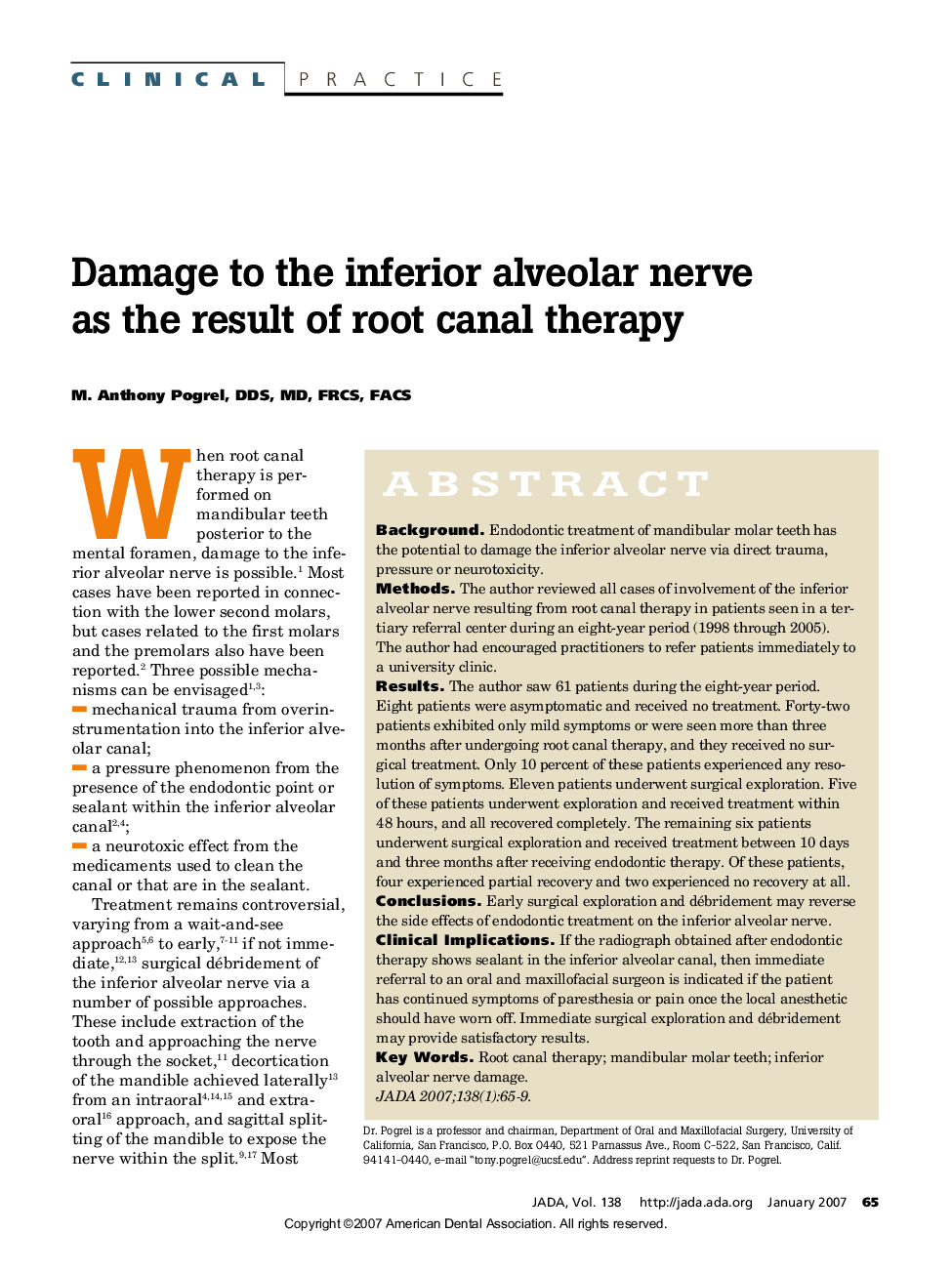| Article ID | Journal | Published Year | Pages | File Type |
|---|---|---|---|---|
| 3140573 | The Journal of the American Dental Association | 2007 | 5 Pages |
ABSTRACTBackgroundEndodontic treatment of mandibular molar teeth has the potential to damage the inferior alveolar nerve via direct trauma, pressure or neurotoxicity.MethodsThe author reviewed all cases of involvement of the inferior alveolar nerve resulting from root canal therapy in patients seen in a tertiary referral center during an eight-year period (1998 through 2005). The author had encouraged practitioners to refer patients immediately to a university clinic.ResultsThe author saw 61 patients during the eight-year period. Eight patients were asymptomatic and received no treatment. Forty-two patients exhibited only mild symptoms or were seen more than three months after undergoing root canal therapy, and they received no surgical treatment. Only 10 percent of these patients experienced any resolution of symptoms. Eleven patients underwent surgical exploration. Five of these patients underwent exploration and received treatment within 48 hours, and all recovered completely. The remaining six patients underwent surgical exploration and received treatment between 10 days and three months after receiving endodontic therapy. Of these patients, four experienced partial recovery and two experienced no recovery at all.ConclusionsEarly surgical exploration and débridement may reverse the side effects of endodontic treatment on the inferior alveolar nerve.Clinical ImplicationsIf the radiograph obtained after endodontic therapy shows sealant in the inferior alveolar canal, then immediate referral to an oral and maxillofacial surgeon is indicated if the patient has continued symptoms of paresthesia or pain once the local anesthetic should have worn off. Immediate surgical exploration and débridement may provide satisfactory results.
